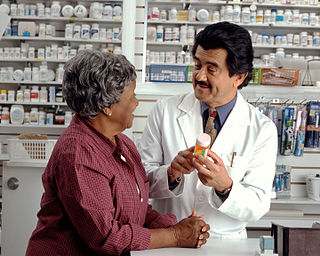Medical psychology is the application of psychological principles to the practice of medicine, and is clearly comprehensive rather than primarily drug-oriented, for both physical and mental disorders. The specialty of Medical Psychology and the National Alliance of Professional Psychology Providers (www.nappp.org) has been instrumental in advocacy and professional publications in increasing the awareness of Governmental Agencies, Scientific Societies, and the World Health Associations about the limited effect of "medication only approaches" to mental disorders and many related chronic physical disorders. A Medical Psychologist is a specialist who holds board certification in Medical Psychology from the American Board of Medical Psychology (www.amphome.org) and approved by the national psychology practitioner association in psychology(www.nappp.org). A specialist in Medical Psychology holds a doctoral degree in one of the clinical specialties in psychology, has done post doctoral graduate or approved didactic training in biomedical and pharmaceutical sciences and physical disease with behavioral and lifestyle components, and has completed a supervised residency providing advanced clinical diagnoses, prescribing or collaborating on medication and psychological treatment interventions in a comprehensive treatment plan, and they have passed one of the acceptable national written examinations, and supplied reviewed work product, and passed an Oral Examination. Medical psychologists are prepared to provide leadership and active roles in primary care and specialty healthcare facilities or consultation services essential for these facilities. A psychopharmacologist is very different from a Medical Psychologist, though one state uses confusing language in its laws.
A patient's bill of rights is a list of guarantees for those receiving medical care. It may take the form of a law or a non-binding declaration. Typically a patient's bill of rights guarantees patients information, fair treatment, and autonomy over medical decisions, among other rights.

Medical ethics is a system of moral principles that apply values to the practice of clinical medicine and in scientific research. Medical ethics is based on a set of values that professionals can refer to in the case of any confusion or conflict. These values include the respect for autonomy, non-maleficence, beneficence, and justice. Such tenets may allow doctors, care providers, and families to create a treatment plan and work towards the same common goal. It is important to note that these four values are not ranked in order of importance or relevance and that they all encompass values pertaining to medical ethics. However, a conflict may arise leading to the need for hierarchy in an ethical system, such that some moral elements overrule others with the purpose of applying the best moral judgement to a difficult medical situation.

Health informatics is information engineering applied to the field of health care, essentially the management and use of patient healthcare information. It is a multidisciplinary field that uses health information technology (HIT) to improve health care via any combination of higher quality, higher efficiency, and new opportunities. The disciplines involved include information science, computer science, social science, behavioral science, management science, and others. The NLM defines health informatics as "the interdisciplinary study of the design, development, adoption and application of IT-based innovations in healthcare services delivery, management and planning". It deals with the resources, devices, and methods required to optimize the acquisition, storage, retrieval, and use of information in health and bio-medicine. Health informatics tools include computers, clinical guidelines, formal medical terminologies, and information and communication systems, among others. It is applied to the areas of nursing, clinical medicine, dentistry, pharmacy, public health, occupational therapy, physical therapy, biomedical research, and alternative medicine, all of which are designed to improve the overall of effectiveness of patient care delivery by ensuring that the data generated is of a high quality.
Regulatory affairs (RA), also called government affairs, is a profession within regulated industries, such as pharmaceuticals, medical devices, agrochemicals, energy, banking, telecom etc. Regulatory affairs also has a very specific meaning within the healthcare industries.
Good clinical practice (GCP) is an international quality standard for conducting clinical trials that is provided by ICH, an international body that defines a set of standards, which governments can then transpose into regulations for clinical trials involving human subjects. A similar guideline for clinical trials of medical devices is the international standard ISO 14155, which is valid in the European Union as a harmonized standard. These standards for clinical trials are sometimes referred to as ICH-GCP or ISO-GCP to differentiate between the two and the lowest grade of recommendation in clinical guidelines.
The American Medical Writers Association (AMWA) is a professional association for medical communicators, with more than 4,000 members in the United States, Canada, and 30 other countries. AMWA is governed by a board of directors composed of the elected officers, 6-8 at-large directors, and the chapter advisory council chair. AMWA has regional chapters and provides local networking opportunities throughout the United States and Canada. The association was founded in 1940 by physicians interested in improving the quality of medical writing and editing. The current president is Cyndy Kryder, MS.
The Council for International Organizations of Medical Sciences (CIOMS) is an international nongovernmental organization established jointly by WHO and UNESCO in 1949. CIOMS represents a substantial proportion of the biomedical scientific community through its member organizations. The mission of CIOMS is to advance public health through guidance on health research including ethics, medical product development and safety.
Pharmacotherapy is therapy using pharmaceutical drugs, as distinguished from therapy using surgery, radiation, movement, or other modes. Among physicians, sometimes the term medical therapy refers specifically to pharmacotherapy as opposed to surgical or other therapy; for example, in oncology, medical oncology is thus distinguished from surgical oncology.
A medical science liaison (MSL) is a healthcare consulting professional who is employed by pharmaceutical, biotechnology, medical device, and managed care companies. Other job titles for medical science liaisons may include medical liaisons, clinical science liaisons, medical science managers, regional medical scientists, and regional medical directors.
A patient safety organization (PSO) is a group, institution or association that improves medical care by reducing medical errors. In the 1990s, reports in several countries revealed a staggering number of patient injuries and deaths each year due to avoidable adverse health care events. In the United States, the Institute of Medicine report (1999) called for a broad national effort to include the establishment of patient safety centers, expanded reporting of adverse events and development of safety programs in health care organizations. The organizations that developed ranged from governmental to private, and some founded by industry, professional or consumer groups. Common functions of patient safety organizations are data collection and analysis, reporting, education, funding and advocacy.

The Association of the British Pharmaceutical Industry (ABPI) is the trade association for over 120 companies in the UK producing prescription medicines for humans, founded in 1891. It is the British equivalent of America's PhRMA, however the member companies research, develop, manufacture and supply 80% of the medicines prescribed through the National Health Service.
Health information management (HIM) is information management applied to health and health care. It is the practice of acquiring, analyzing and protecting digital and traditional medical information vital to providing quality patient care. With the widespread computerization of health records, traditional (paper-based) records are being replaced with electronic health records (EHRs). The tools of health informatics and health information technology are continually improving to bring greater efficiency to information management in the health care sector. Both hospital information systems and Human Resource for Health Information System (HRHIS) are common implementations of HIM.
Medical ghostwriters are employed by pharmaceutical companies and medical-device manufacturers to produce apparently independent manuscripts for peer-reviewed journals, conference presentations and other communications. Physicians and other scientists are paid to attach their names to the manuscripts as though they had authored them. The named authors may have had little or no involvement in the research or writing process.
The Faculty of Pharmaceutical Medicine (FPM) is a Faculty of the three Royal Colleges of Physicians of the United Kingdom. It is a UK-based professional membership organisation with over 1,500 members; physicians with a professional interest in the speciality of pharmaceutical medicine, the science of discovering, developing and testing new drugs, their regulation, and monitoring them for safety both during development and when they are prescribed. The Faculty is a registered charity and ultimately exists to bring about an improvement in health in patients and the general population.
The Physician Payments Sunshine Act is a 2010 United States healthcare law to increase transparency of financial relationships between health care providers and pharmaceutical manufacturers.
The rhetoric of health and medicine is an academic discipline concerning language and symbols in health and medicine. Rhetoric most commonly refers to the persuasive element in human interactions and is often best studied in the specific situations in which it occurs. As a subfield of rhetoric, medical rhetoric specifically analyzes and evaluates the structure, delivery, and intention of communications messages in medicine- and health-related contexts. Primary topics of focus includes patient-physician communication, health literacy, language that constructs disease knowledge, and pharmaceutical advertising. The general research areas are described below. Medical rhetoric is a more focused subfield of the rhetoric of science.
Guidances for statistics in regulatory affairs are applicable to the pharmaceutical industry and medical devices industry. These Guidances represent the current thinking of regulatory agencies on a particular subject. It is to be noted that the term “Guidances” is used in the USA, whereas the term “Guidelines” is used in Europe.









